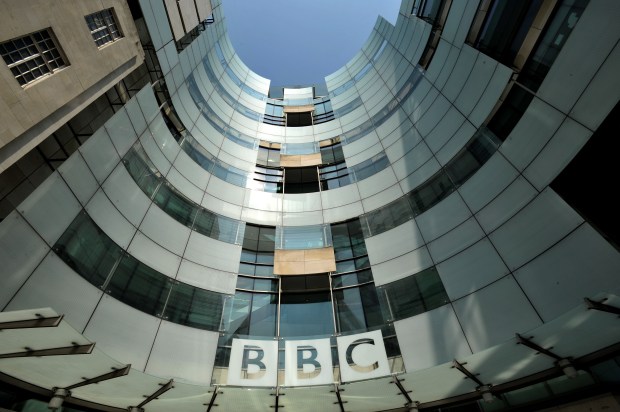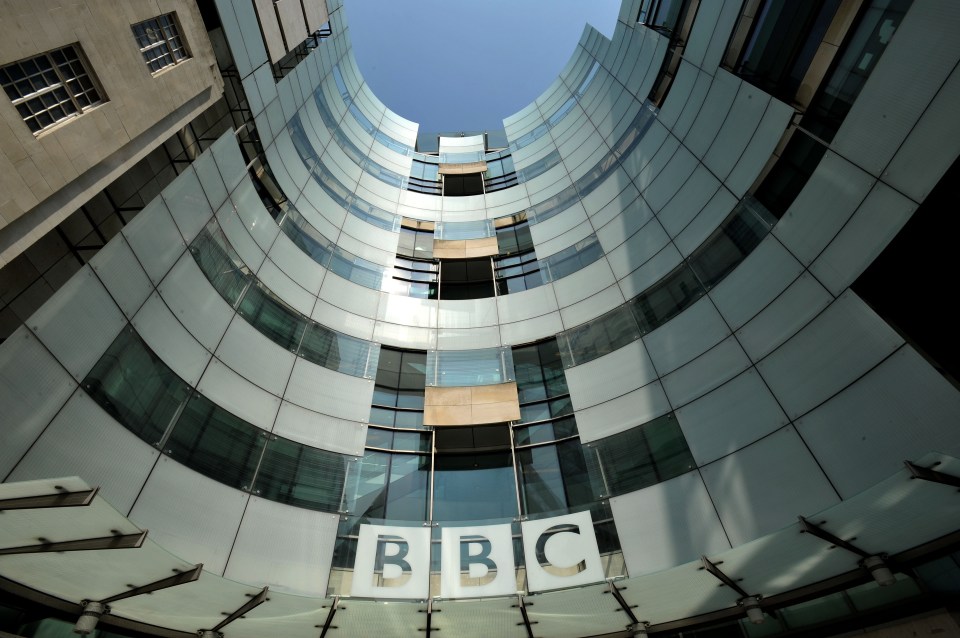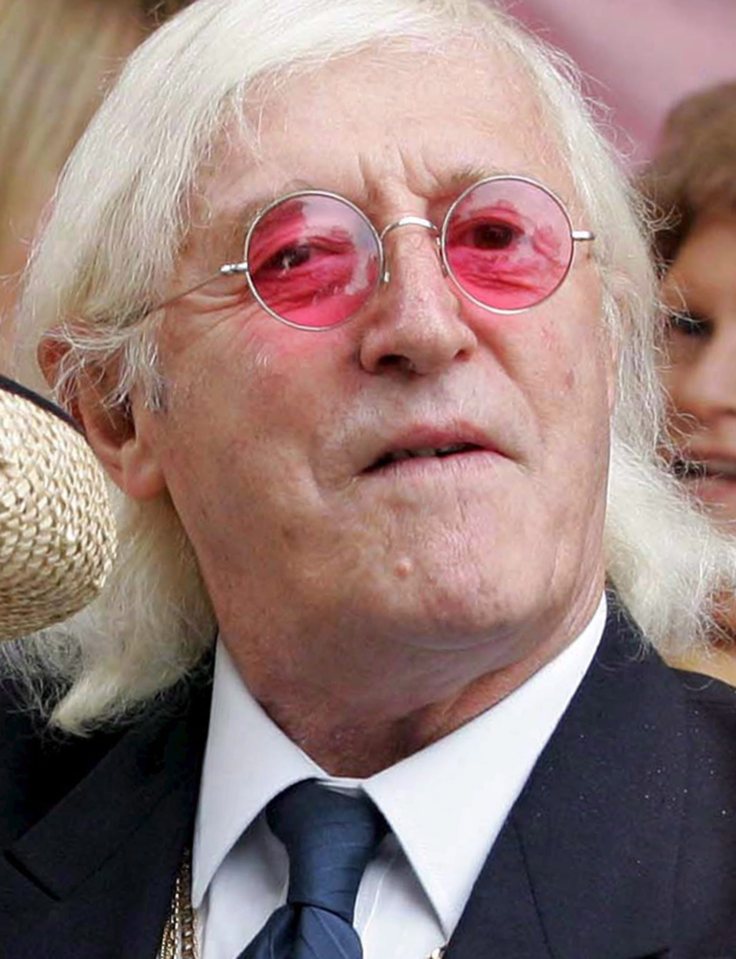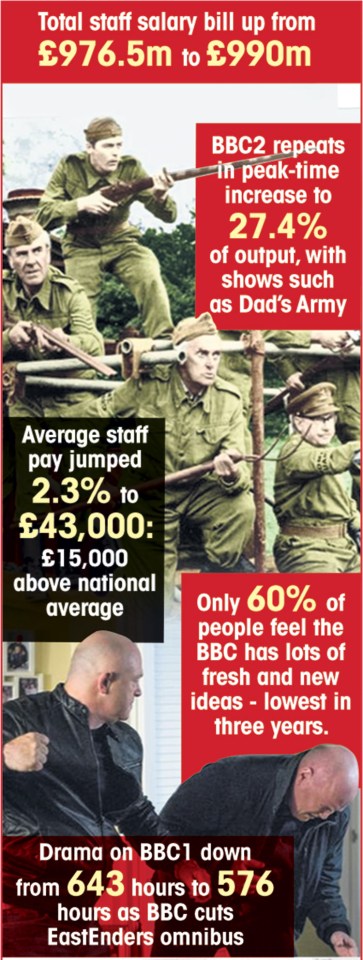BBC wage bill goes up as it airs more repeats than ever before
Auntie promised to cut staff costs and invest in top telly but their annual report is a catalogue of failures

THE BBC’s wage bill went up last year as promised cost-cutting plans saw just 54 staff axed.
The average BBC worker’s pay rose 2.3 per cent to £43,000 a year, £15,000 above the average national salary, with the total bill up to £990million.
The figures, revealed in the Corporation’s annual report, came as “appreciation” of its TV fell for the third year in a row.
The Beeb was also shown to have reached fewer people than the year before.
The governing body, the BBC Trust, wrote in the report that there was a “performance gap” between what the public wanted and what the broadcaster gave them.
Governors said there was a “public appetite” for it to “take more risks and offer more original content”.
It also emerged that the number of repeats shown during peak time rose, making up an astonishing 27.4 per cent of output on BBC2.
The BBC, led by director-general Tony Hall, did cut senior managers — but that led to a 41 per cent surge in the number of six-figure “severance” pay-offs to £9.8million.
And the pay of its executive board and trustees rose from £3.65million to £3.73million last year.
A BBC spokesman said: “BBC programmes continue to be among the most popular.
“We’ve saved over £150million a year through pay restraint and headcount reductions over the past nine years.”
Bullying and harassment cases fell from 47 to 41, a report into the BBC’s response to Dame Janet Smith’s review into sexual abuse by Jimmy Savile showed.
Eleven of the cases reached the disciplinary stage.















